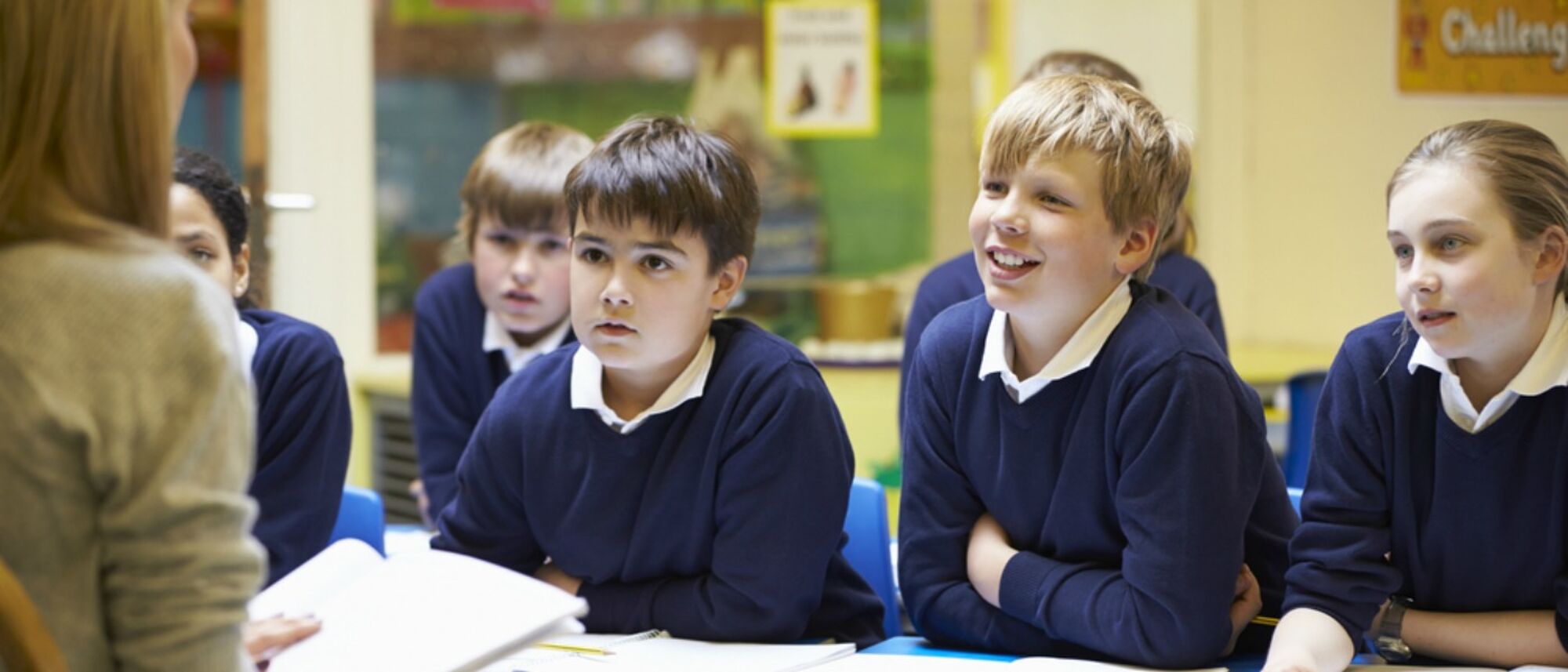
School Improvements Programme
Tackling inequality in education
Researchers at the University of Glasgow focus on addressing poverty-related educational inequality through influencing policy and in-school practice.
Scotland, like many places around the world, faces inequality in its schools. Children from the most disadvantaged backgrounds tend to do worse than their more affluent counterparts – this is known as the poverty related attainment gap. The School Improvement Partnership Programme (SIPP) was developed by researchers from Glasgow to help schools improve their practices so that all children, regardless of background, have an equal chance of reaching their potential.
Researchers from the Robert Owen Centre for Educational Change (ROC) at Glasgow worked with teachers, local authority officers, other local services, and Education Scotland to develop school-to-school partnerships based on collaborative enquiry. Giving educators the power to make tailor-made changes to respond to the environment in their own classrooms and schools.
The three-year programme (2013-16) was designed to build relationships, develop, and embed new evidence-based strategies to tackle educational inequality and establish ways of working that would out-live the duration of the programme. The Programme supported educators to use research evidence, experiment with their in-school practice and monitor the impact of changes they made. It also provided structured opportunities for teachers to share learning within their schools, across their SIPP partnership and the wider national network.
Schools running SIPP saw improvements surrounding students’ maths and literacy scores, confidence, engagement and parental involvement. One school reported a positive increase from baseline attainment in maths for target pupils from 40% to 68%. While another reported that parent surveys show children’s attitudes towards math and problem-solving had improved.
Tailored strategies to deliver change
Whilst working within an overarching framework and a set of guiding principles, each partnership developed their own specific strategy to meet needs and concerns about tackling inequality. A key finding across all the partners was the importance of creating networks for collaboration. One teacher commented that it was helpful that “the findings from the collaborative action research projects are shared at local meetings, and online, including blogs.” These networks allowed teachers to interrogate the effectiveness of specific strategies and make changes to their in-class practice based on the evidence.
The resulting collaborative networks allowed educators to share strategies that were effective with others. Partnership networks integrated evidence-based assessment into working models, and made improvements in the classroom based on research data. This type of sharing made it possible for one school to increasing their reading age, students in the SIPP group had a reading age 5.9 months higher than peers in the control group.
A strong group of core participants in each partnership was key to widening participation in the programme in their schools and beyond. Core SIPP enthusiasts engaged colleagues with their new strategies to spread the programme across schools and partnership areas.
“This opportunity was extremely valuable and inspiring, and as a result is having impact on practice and further improvement in learners’ experience”. Programme participant
The Programme confirmed that educators working collaboratively to make evidenced-based decisions for their classrooms, schools, and local authorities can have a positive impact on the poverty-related attainment gap.
Sustainability and legacy
The timing of SIPP was important for Scottish education. It was developed as the Scottish Government made a clear commitment to improving educational outcomes for all children, ‘ensuring every child has the same opportunity to succeed’. SIPP was strategically aligned with the Scottish Government’s explicit intentions for the Scottish education system.
SIPP formally ended in 2016, but the programme’s impact is ongoing. The Educational Governance Review, published in June 2017, featured lessons from SIPP about using evidence, collaboration and networking between educators to foster cultural change and capacity building. SIPP principles are strongly encouraged through Education Scotland publications such as ‘How Good is Our School’. More schools in Scotland are benefiting from SIPP by investing their Pupil Equity Funding, funds allocated to schools and targeted at closing the attainment gap, in similar programming.
SIPP demonstrated positive impacts in Scotland, and continues to gain the attention of educators and policymakers both locally and globally. The impact of this research goes far beyond the initial partnerships and three-year project. Focus on pioneering collaborative educational strategies with researchers working alongside key policymakers and practitioners is one way to ensure a bright future for all children and young people.
Discover more
About the researcher
 Professor Chris Chapman's research seeks to help all children reach their full potential irrespective of their background through research on interactions between educational and public service research, policy and practice. Professor Chapman's focus on practical interventions often involves working collaboratively with schools and communities to develop deeper understandings of educational outcomes and support narrowing the attainment gap. He has held over 60 funded research and development projects for research councils, governments and charities totalling over £6million, published 11 books and over 100 peer-reviewed articles, is a member of the First Minister’s International Council of Education Advisers, and is Senior Academic Adviser to the Scottish Attainment Challenge.
Professor Chris Chapman's research seeks to help all children reach their full potential irrespective of their background through research on interactions between educational and public service research, policy and practice. Professor Chapman's focus on practical interventions often involves working collaboratively with schools and communities to develop deeper understandings of educational outcomes and support narrowing the attainment gap. He has held over 60 funded research and development projects for research councils, governments and charities totalling over £6million, published 11 books and over 100 peer-reviewed articles, is a member of the First Minister’s International Council of Education Advisers, and is Senior Academic Adviser to the Scottish Attainment Challenge.

